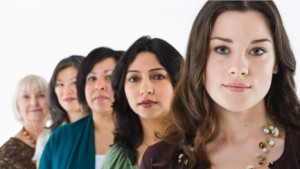 According to the latest UN reports, around 800 women die every day during pregnancy and childbirth, and for each of these deaths, another the wellbeing of another 20 is affected by lifelong suffering due to injury, infection, disease or disabilities stemming from pregnancy, childbirth or an unsafe abortion. Human rights organisations, such as Amnesty International, say that the entrenched gender discrimination of countries around the world leads to these catastrophic wellness consequences.
According to the latest UN reports, around 800 women die every day during pregnancy and childbirth, and for each of these deaths, another the wellbeing of another 20 is affected by lifelong suffering due to injury, infection, disease or disabilities stemming from pregnancy, childbirth or an unsafe abortion. Human rights organisations, such as Amnesty International, say that the entrenched gender discrimination of countries around the world leads to these catastrophic wellness consequences.
‘From Indonesia to Peru, Sierra Leone to the USA, millions of women and girls are paying with their lives for failed health policies, inadequate care, and discriminatory laws. Many face discrimination and violence in their communities and families, with little or no hope of justice or support from governments,’ said Marianne Mollmann, senior policy advisor at Amnesty International.
There are many countries in which women and girls cannot, or struggle to, access basic reproductive and sexual health services and information. Sometimes this is because governments fail to invest their resources or make this a priority, but in other cases there are health services that exist, only they are concentrated in more affluent areas, restricting access for many women who live too far away or cannot afford the cost of getting there.
Even when they do reach the health centres, Amnesty International found that, even in the USA, women who live in poverty are sometimes ill-treated by staff members who don’t understand their needs or speak their language. According to Mollmann, ‘Every year millions of women and girls face almost insurmountable barriers to accessing the most basic health care, in particular when it comes to their sexual and reproductive health. They are consistently denied access to information, contraceptives, emergency obstetrics services, and even remedies for substandard care.’ She added, ‘The tragic reality is that many deaths and injuries connected with pregnancy and childbirth can be prevented.’
She continued, ‘These past decades, we have seen increased investment in prenatal care, in particular. And while that leads to necessary improvements in infant care, it does little to tackle underlying inequalities in access to health information and care. Women obviously have healthcare issues that are unrelated to childbirth. The fact is that governments are reluctant to prevent discrimination and remedy abuse.’
A UN Programme of Action was adopted two decades ago, and representatives of UN member states will gather again in 2014 to review its progress on the Programme of Action adopted two decades earlier in Cairo. Mollmann explained, ‘We hope this review will help move these issues forward. Our demands are basic – everybody should be able to make independent and informed decisions about their health, bodies, and lives, and live free from violence. As a minimum, this requires access to comprehensive sexuality education for all.’
Google+
Gender Discrimination: The Silent Killer of Women Worldwide




